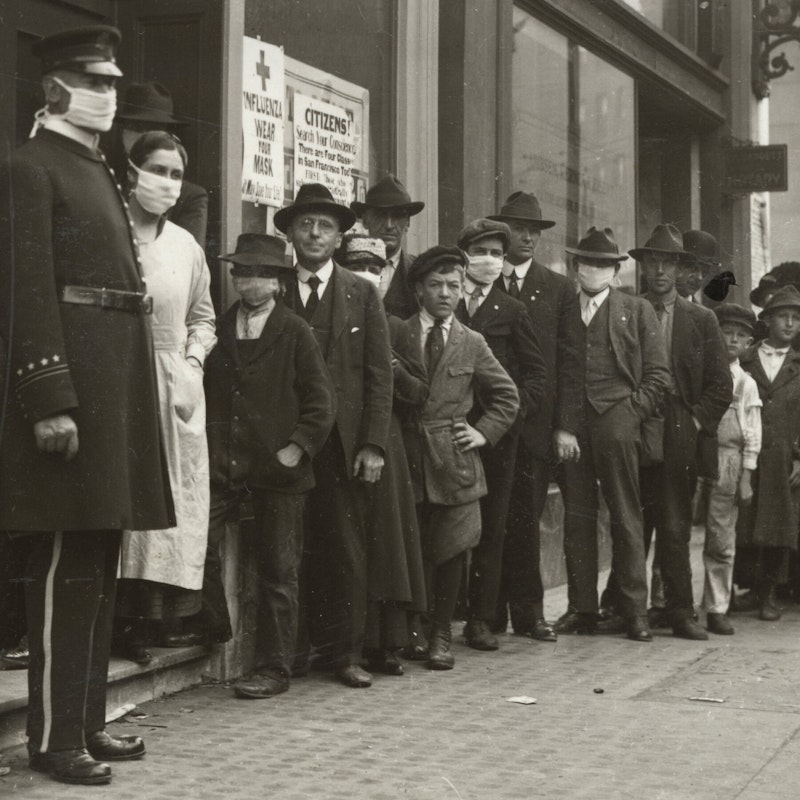Against my better instincts, I read a long essay by The New Yorker’s Adam Gopnik over the weekend, “Did The Year 2020 Change Us Forever?", and though it was marred by liberal orthodoxy (mandatory at the magazine that, for now, still publishes weekly) and a misleading headline that the author may or may not have written, and found it worthwhile. Gopnik’s peg was the publication of Eric Klinenberg’s “excellent” 2020: One City, Seven People, and Year Everything Changed (Gopnik admits it’s hard to write a historical book about “an episode that happened five minutes ago”; humor isn’t his forte, nor is popular culture, as I wrote a few months ago), but it gives him the opportunity to muse about significant years and events of the past century and it’s far more absorbing than the dumb games played on Twitter and Facebook like “Abbey Road is the best Beatles record. Fight me.”
Gopnik lists candidates for turbulent years, or series of years, that “changed everything,” ranging from the 1929 market crash and the resulting Great Depression which segued into World War II and the bomb; 1968 for its assassinations, cultural whipsaw and “domestic unrest that announced the beginning of the end of American bulwark empire,” and less enthusiastic nods to 1979 for the Ayatollah’s Iran takeover and Margaret Thatcher’s UK dominance, as well as the dissolution of the Soviet Union, symbolized by the Berlin Wall’s demolition, and 2001 for obvious reasons. Ultimately, he writes: “But 2020, the year when a virus came out of China and shut down the world, gets in by acclamation.” That’s debatable, but still an intellectual exercise that makes a reader think, as opposed to around 95 percent of what’s found in the media today.
The most fascinating section concerns “the last pandemic to strike the world, the Spanish flu,” which started in 1918 but is still given short shrift by historians. That’s baffled me as well: my parents were born in 1916 and 1917, and were undoubtedly affected by the rapidly-spreading disease, but when I grew up and badgered them for “the old days” stories, it was rarely, if ever, mentioned. The Depression, which wiped out my paternal grandfather’s jewelry business, putting him on skid row, and spooked my mother’s family (even though my mom’s father deftly negotiated the market before the crash) was responsible for their extreme thrift. Less dire, and at times funny, were (perhaps apocryphal) tales of their elders’ skirting the absurd dozen or so years of Prohibition. And WWII, another generation-defining catastrophe (they opposed American intervention, like many Republicans, until Pearl Harbor), that was the source of horrific stories; friends killed, rationing, and pure fear.
Gopnik convincingly explains: “We have room for only one story at a time, the historians argue, and in a competition for memorial space—at times a literal one—a military conflict among nations takes political priority over a medical conflict between germs and humanity. An idea of heroism sticks, however grotesquely, to the story of war as it does not stick to the story of infection.”
Gopnik’s on shakier ground, I think, when he (perhaps unintentionally) glibly dismisses 9/11, in comparison to Covid, writing, “A terrorist attack came and went, was grieved and then memorialized, but big terrorist attacks will happen every generation or so.” Really? In the United States? A more complete autopsy, so to speak, of Covid’s permanent ramifications is yet to come (since it happened “five minutes ago”), but think of what followed the events of 9/11: airline (and to a lesser extent, railroad) travel was altered forever, not only for the mandated early arrival times and the TSA inspections, but the increasing hostility of airline companies and their employees to travelers; the country’s security apparatus, present in the 1990s and before, was ramped up exponentially, and led to the not-wacko apprehension of the “Deep State,” (I’m on the fence as to whether Deep State needs quotation marks anymore) probably leading to the Tea Party that haunted Obama, and with the diminution of local and national media (which desperately attempted new revenue streams—mostly in vain—as readers and viewers moved on) allowed Donald Trump (alleged populist) to defeat Hillary Clinton (a queen of Washington’s until-then Permanent Government) in 2016.
It could be said that the awful introduction of “Casual Fridays” in the 1990s led to “working remotely,” an anti-social phenomenon that increased this century, before the Covid lockdowns stifled the traditional workplace. The business press hardly goes a day without noting the high vacancy of office buildings in large cities, and how long that continues is anybody’s guess, although canny (maybe!) investors are now betting on a resurgence in crime- and tax-ravaged San Francisco.
About six months ago, upon arriving at a hospital appointment in Baltimore County, I’d forgotten my mask and prepared for an attendant to scold me. But almost no one—aside from doctor and nurses—wore masks, surprising, since I thought that was a Covid edict that would become permanent. I did notice, however, on all the doors, signs reading “NO GUNS ALLOWED!” and maybe that’s a more apt signal for today.
—Follow Russ Smith on Twitter: @MUGGER2023

